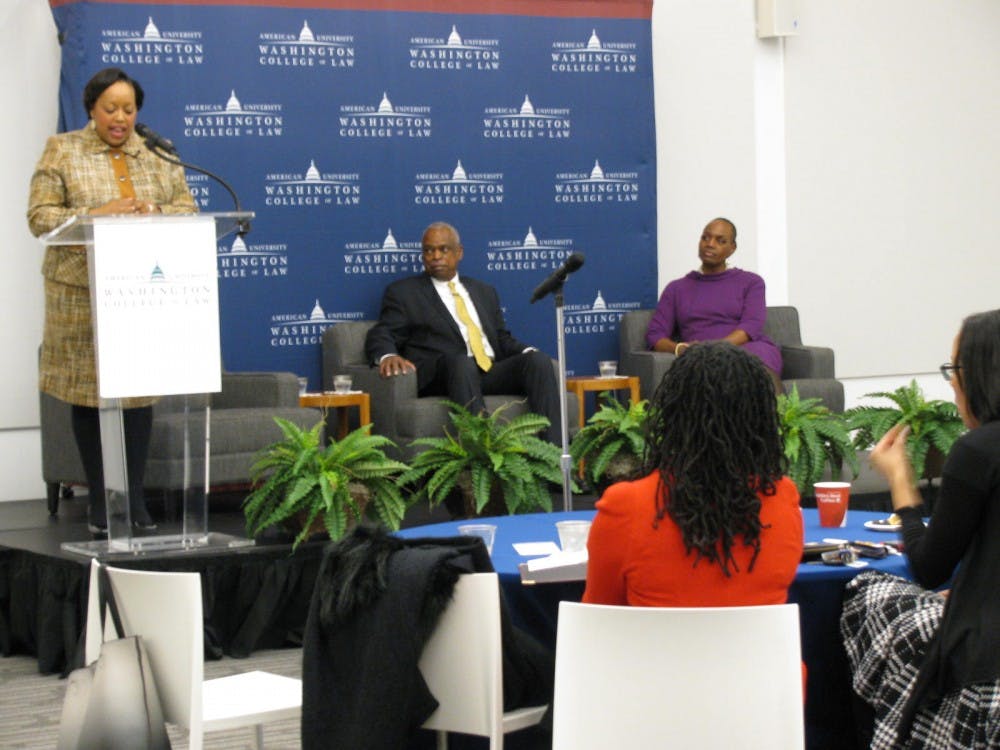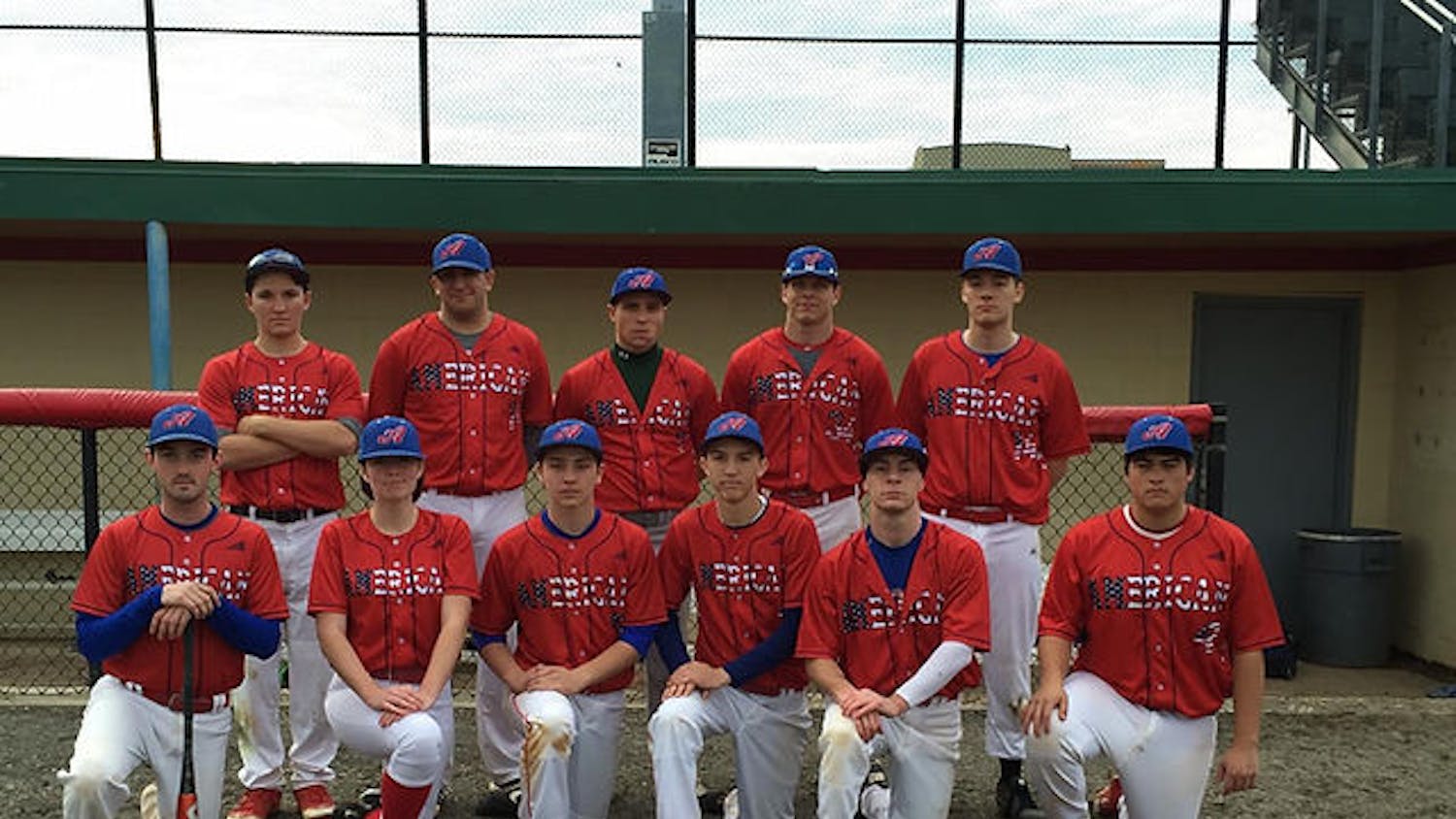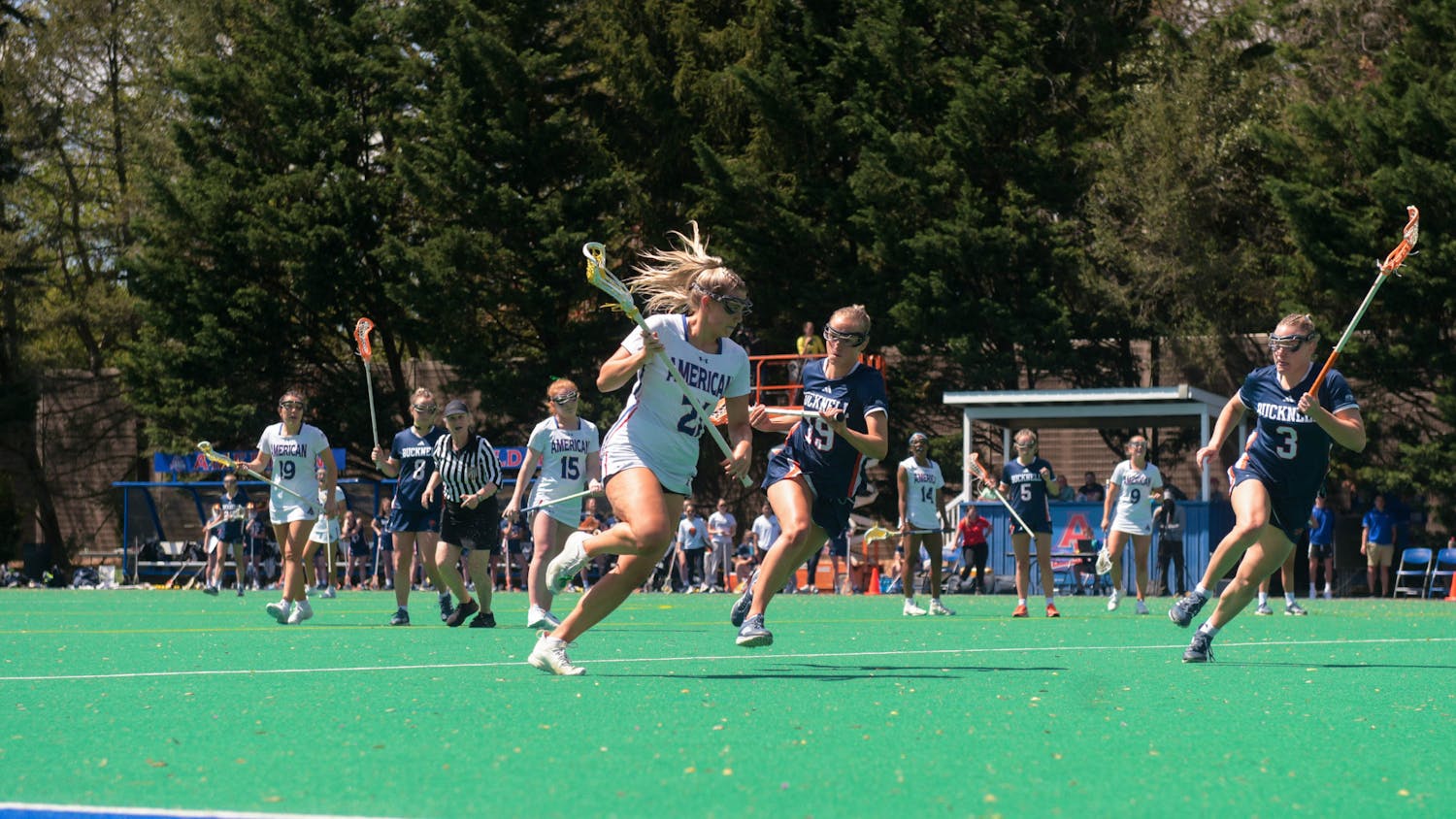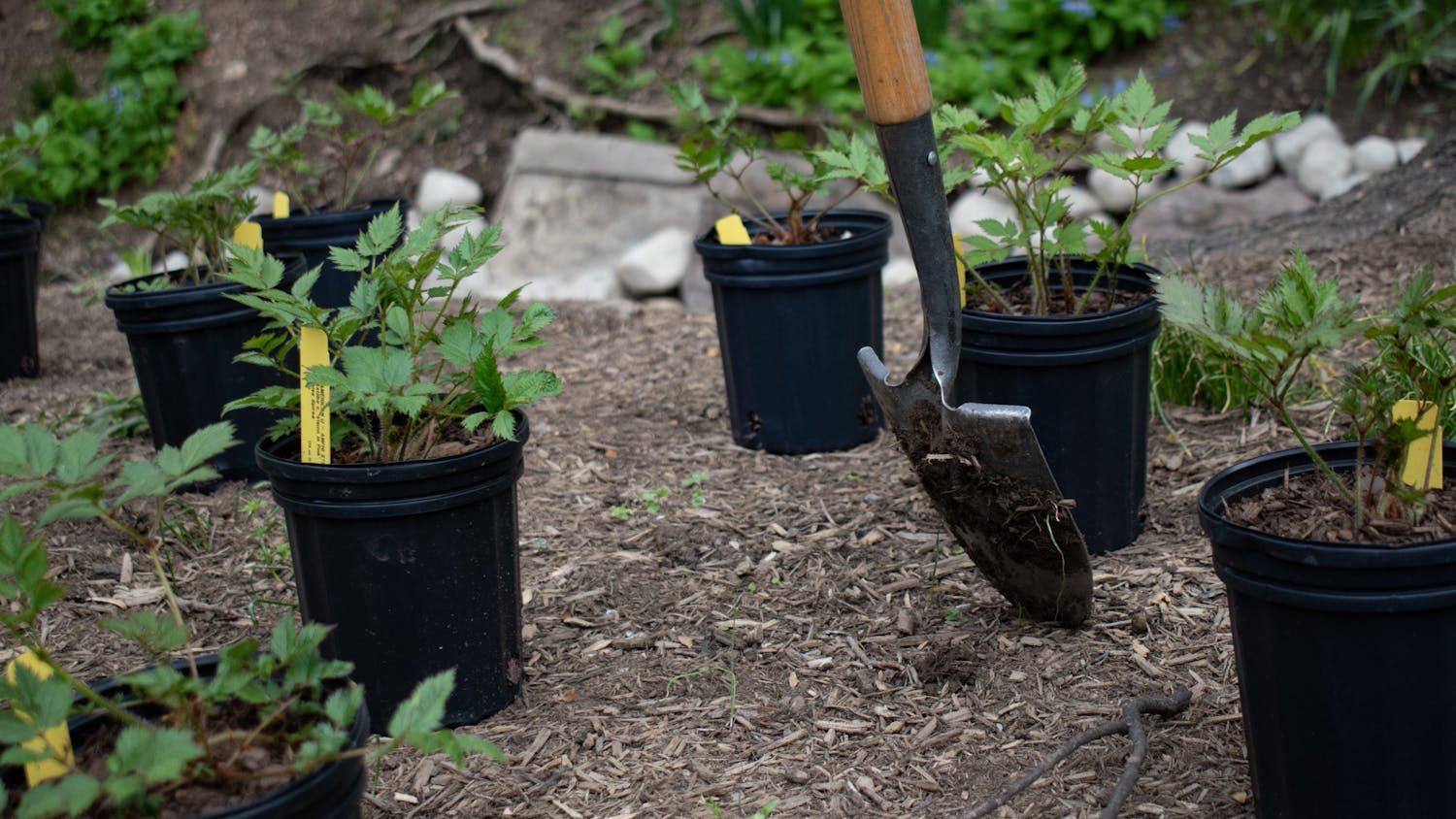At the Washington College of Law’s event “The Long Road,” civil rights leaders engaged in a conversation designed to bring awareness of the historical and present adversities many black Americans have dealt with across America for over 200 years, Kendra Brown, Washington College of Law’s director of diversity, inclusion and affinity, said.
Echoing past and present race and class inequities, world-renowned civil rights leaders Wade Henderson and Nicole Austin-Hillery spoke on Feb. 19 about issues including voting rights, mass incarceration, student debt and unfair housing practices as a way to identify how racial and class inequities became part of the United States’ social and political landscape.
Austin-Hillery, former director and counsel of the Brennan Center for Justice in Washington, an organization that focuses on voting rights across the U.S., said the first step toward equal opportunity in the U.S. would be to take people from different backgrounds and “have difficult conversations” with each other about common difficulties facing their communities.
“Class, wealth and race need to be addressed by the African-American community and not just with other people and pointing the finger asking ‘what is our goal?’ ” Austin-Hillery said.
First year law student Maya Jefferson said the conversation deepened her understanding of how legal frameworks play into social and racial inequities in the U.S.
“Although we hope to be our best selves, sometimes it is necessary to assume how some Americans will abuse the law to harm [underrepresented and oppressed] groups,” Jefferson said. “Students don't always get that context in the classroom.”
Solutions and goals
Austin-Hillery said “leveling the playing field and creating equal opportunity for all communities” is paramount to having a functioning democracy. That means voting infrastructure and unfair housing policies must be redesigned for progress to be made, she said.
“Our election system will break down on its own if we don’t take care of [the crumbling infrastructure] of the voting machines,” she said.
Austin-Hillery said that voting machines need to be updated and replaced, but funding is not available to the states.
Henderson, who spent 20 years as the president of the Leadership Conference on Civil and Human Rights, said gentrification is a problem in Washington because many locals can no longer afford to rent or buy homes in the city.
“I remember what it was like living in Bloomingdale,” Henderson said. “Now, those houses are sold for over a million dollars. Who can afford that? Only people with money.”
However, Henderson and Austin-Hillery acknowledged generations of voters as being complacent or reluctant to vote, and not seeing how the decision-makers in Congress affect their access to voting or other civil and human rights issues. They both said their generations are responsible for poor voting turnout from the new generation of voters.
“I want to scream when I hear people ask ‘Why should I vote?,’ ” Austin-Hillery said. “It’s like nails going down on a chalkboard.”
Building coalitions to decrease American wealth gap
Rising college student loan debt has increased the generational wealth gap, Henderson said, which puts people who do not come from middle or upper-middle class households at a disadvantage when they graduate from college.
“I know people who have student loans that equal to a house note,” Henderson said.
However, Henderson said a coalition between the Public Housing Authorities Director Association (PHADA) and American Association of Retired Persons (AARP) has formed to help incoming college students afford the higher education experience, and to close the increasing wealth gap.
Jefferson said she’s interested in building a coalition between blacks and those from low-income households as a way to improve racial and wealth inequality in America.
“Black people, specifically, benefit when we work with other groups that have a stake in our movements,” Jefferson said. “And working with people who do not share that identity does not make Black movements any less Black.”
Austin-Hillery said legal frameworks also contribute to problems with equal access to voting in the U.S.
A 2013 U.S. Supreme Court ruling “gutted” an important provision from the 1965 Voting Rights Act that was designed to protect vulnerable voting populations, such as people of color, students, women and the elderly from having unequal access to voting, she said. Austin-Hillery also said her “liberal” home state of Pennsylvania led the effort to put voter ID laws in place, making it harder for those vulnerable populations to vote.
“[Reversing the new laws] will take money, states working together and federal government supporting … voting rights,” Austin-Hillery said. “Bringing everyone together to fight against inequality is where people who face adversity need to go to make progress toward bringing equal opportunity for everyone in the U.S. and the world.”
Hate crimes across America
“We don’t have the full picture about hate crimes,” Henderson told The Eagle. “In Miami and Honolulu, and across many areas in the U.S., hate crimes may be voluntarily reported by the police. This shows us how much change is slow, and that advocacy is something that we always have to take into account.”
Henderson said he discovered how police departments may voluntarily report hate crimes while he worked on the first comprehensive Congressional hate crime report, published in 1996. He said he worked with Congress to establish better laws to protect vulnerable communities, such as people of color and Jews, who have been found to be more likely to face hate crimes within their communities compared with whites or those who follow the U.S.’s major religions.
“Since we all live in silos, it’s impossible to know what goes on in everyone’s community,” Henderson said.
Austin-Hillery said many of today’s challenges with race and class stem from the beginning of our country’s development.
“We all have to remember that this nation was not built for minorities, women, or for people with disabilities,” Austin-Hillery said. “It was not built for anyone different than the original founders who were wealthy white men who owned land.”





